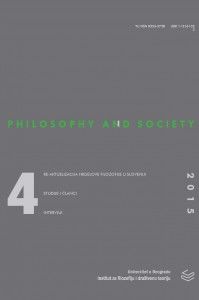
We kindly inform you that, as long as the subject affiliation of our 300.000+ articles is in progress, you might get unsufficient or no results on your third level or second level search. In this case, please broaden your search criteria.


The article is a confrontation with Robert Brandom’s reading of Hegel’s Phenomenology of Spirit, his attempt to systematically “renormalize” Hegel, i.e., to reduce his extravagant formulations to the criteria of common sense. The article analyses a number of Brandom’s “domestications” of Hegel’s speculative concepts: self-relating, determinate negation, mediation, In-itself, action, knowledge, Spirit, reconciliation, history. On the basis of the examples from Marx, Freud, structuralism, Lévi-Strauss, Althusser, Lacan, Adorno, the text defends Hegel’s “madness”, the irreducible speculative, non-interpretable core of his philosophy. Hegel’s statements have to shock us, and this excess cannot be explained away through interpretation since the truth they deliver hinges on that.
More...
Through an original and extraordinarily fruitful reading of the Hegelian conception of negativity, Catherine Malabou developed the concept of plasticity which she keeps working on as one of her cardinal concepts even to this day. Engaging in the problematic of unity in Hegel, the paper takes on the task of trying to answer the question whether plasticity is one or are there several plasticities. The author argues that one must be careful not to reduce the inherent multiple of plasticity to a single plasticity which becomes plasticity par excellence: the plasticity of plastic explosion, of an abrupt and absolute break, to be distinguished from a creative or productive plasticity of habit. Malabou claimed that Hegel was – contrary to what Deleuz read in him – a philosopher of conceptual multitude as a multitude which cannot be reduced to only one image, the image of unity. If this is true, then the concept of plasticity itself with which she grasped the essence of Hegel’s dialectics, should be understood at least as a “unity in conflict”, if not as an inorganic, inhomogeneous, composed unity – and perhaps even as a unity of the pack.
More...
It seems that Harre's reference to Kant starts from the presupposition that categorical imperative is only a formal principle whose content is separable from it. If one takes the pattern of the natural law as adequate for interpretation of the fundamental pattern of categorical imperative, then it can be equated with Harre's principle of universibility. However, the pattern of autonomy is fundamental for the explication of categorical imperative because it points out the origin of categorical imperative, and the issue of the acquired universality. Also, it can be proved that the fundamental pattern of the categorical imperative is equivalent to the pattern of purposfullness, namely that the formal formulation of the categorical imperative cannot be separated from the content. On the other hand, since Kant took categorical imperative as a cryterion for moral evaluation of maxim of acting, the author reconsiders the possibility of utilitarian interpretation of Kant's test of universalism. If that could be possible then Harre's thesis on the synthesis of utilitarianism and dentic ethic would not be surprising but rather found in Kant's works. However, the categorical imperative cannot be equated with the argument of generalization (what would happen if everyone did that?) nor with the argument of the golden rule, because they examine only the legitimacy of action and Kant's test of universality on the other hand, refers to morality of maximes. Harre's utilitarian strategy, defined by an argument of the golden rule, aims for the general, but this generality is not Kantian,
More...
Ono što Löwithovo filozofsko mišljenje izražava višestruko je. U filozofiji 20. stoljeća to je, čini nam se, bdio u sjeni drugih, značajnijih filozofskih ili društvenih pitanja. U sjeni je pitanja koje otvara filozofski diskurs modeme, koja liiteramokritički, esejistički, kritičko-estetički, filozofsko»antropološki, slavi samo pobjedu jednog principa, jedne logike. Tu logiku danas vidimo u vladavini principa subjektivnosti koja stiče svoju samosvijest u procesu subjektiviranja, potčinjavanja svega što se može potčiniti.
More...
Posle Hegelove smrti 1830. godine svet je postao običniji. Ove Burkhartove reći u doslovnom smislu izražavaju i Levitov program. Samo što on isti problem sagledava znatno radikalnije. Za Levita ovaj prelom, koji se posle Hegelove smrti zbio u mišljenju 19. veka, znači »dovršenje nemačke kulture od strane Hegela i Getea.« »Ove studije iistorije duha, veli Levit, ipak nisu prilog istanji duha u uobičajenom smislu reči. Jer temelji istorije duha, koji potiču iz Hegelove metafizike duha, reducirani su otada na trivijalno. Duh kao subjekt istorije više nije fundament nego, u najboljem slučaju problem. Ono što preostaje od duha samo je još duh vremena«. (S. 8)
More...
Po običaju, treba nešto na ovim našim kolokvijima reći, onako kako to činim svakom prilikom, a ovom prilikom, smatram, i posebno. Djelo izazovnog naslova, enciklopedijsko svojom širinom, ali i prebogato sveopćim-univerzalnim sudovima koji nas dovode, ili nemam pravo reći nas, no mene dovode u teškoće razumijevanja: značenja sadržaja, opsega pojmova, do nedoumica i prijepora.
More...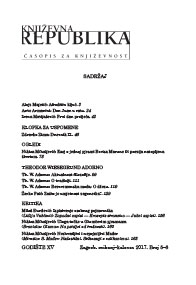
Tko danas odabire filozofski rad kao zanimanje, mora od samog početka odustati od iluzije s kojom su nekoć započinjale filozofske razrade: da je moguće snagom mišljenja zahvatiti totalitet stvarnoga. Nikakav opravdavajući razum nije se mogao ponovno pronaći u stvarnosti čiji poredak i oblik pobija svaki zahtjev razuma; tek polemički ona se spoznavatelju pruža kao cijela stvarnost, dok samo u tragovima i krhotinama dopušta nadu da bi se jednom dospjelo do prave i odgovarajuće stvarnosti.
More...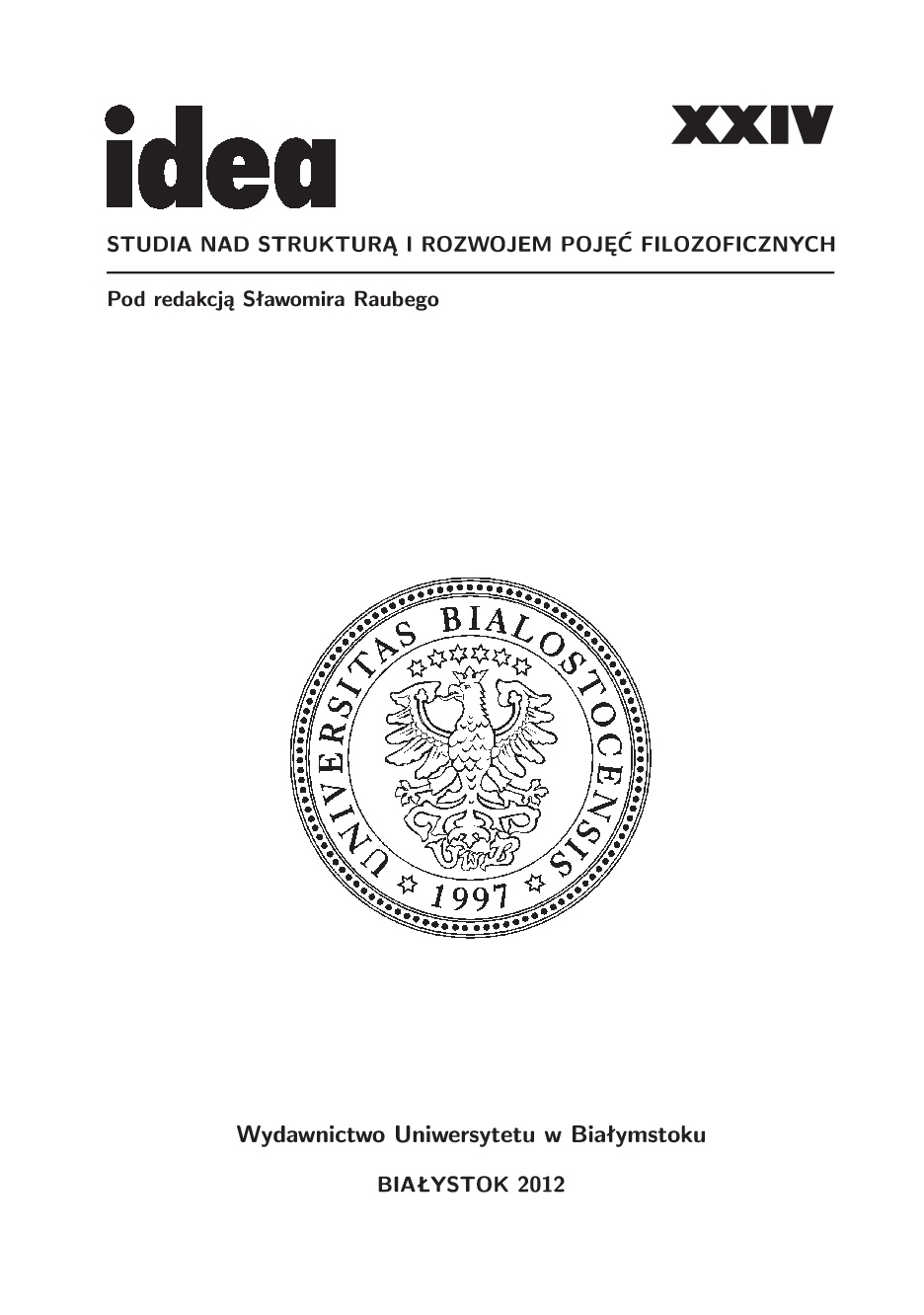
In his first work entitled “Thoughts Concerning the True Measure of Vital Forces” Kant made an attempt to solve one of the most famous disputes of 17th-century philosophy. Though Kant’s solution is incorrect, it shows the way the philosopher usually solved philosophical problems. In his later works, written during the critical period, Kant came back to the problems he dealt with in his first essay, but the most important continuation of it can be found in the unpublished notes being part of so-called Opus postumum.
More...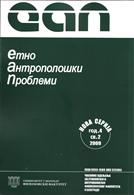
The author examines possible analogies between Kant’s transcendental idealism and de Saussure’s and Levi-Strauss’s structuralism, in order to analyse if the former can be understood as a predecessor for the later. The author shows that both teachings assume a priori formal framework, but they diverge in the ways they describe it, as well as in understanding of its function. Consequently, the author concludes that structuralism can be seen as one possible use of Kant’s idea about the existence of such a frame. Furthermore, the author claims that Ricker’s understanding of structuralism as ‘Kantianism without transcendental subject’ should be rejected, since a teaching which does not assume existence of such subject cannot be understood as Kantian.
More...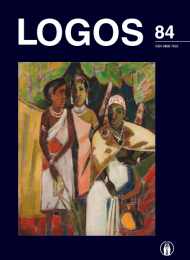
In this article we delineate the concept of subjectivity in Fichte’s Science of Knowledge. In our critical analysis we distinguish three levels of the dynamic concept of subjectivity and focus on problems which refer to the fundamental determination of their absolute subject. Fichte develops his conception of absolute subjectivity from Kant’s conception of the autonomous subject in the practical part of his critical transcendental philosophy. Absolute subjectivity is not reflected, but simply posited as an absolute thesis. Nonetheless, we claim that the structure of absolute subjectivity becomes unintelligible unless we maintain the principles of heteronomy and reflectivity. Following different ways of interpreting the conception of the absolutely autonomous subject, we conclude that the act of absolute positing cannot be proved through or reflected in theoretical investigation. Hence, there is a demand for a “thetic judgment” by which subject posits itself absolutely.
More...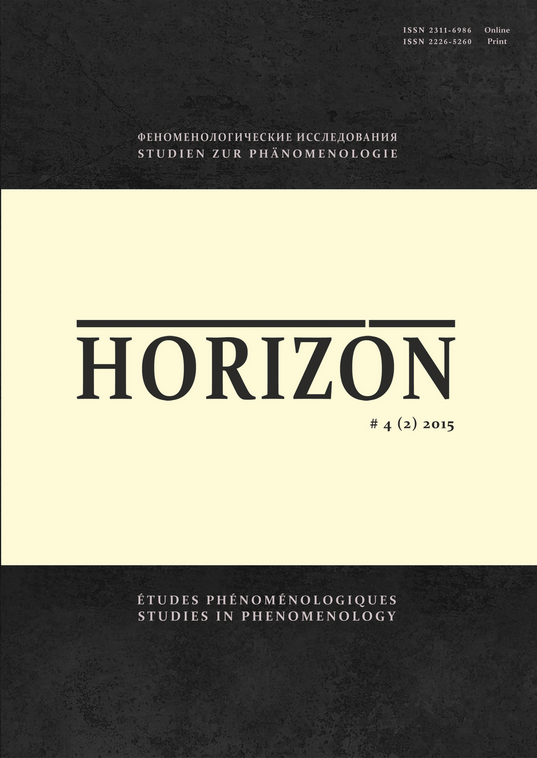
The author of the article framed the question of the possible relevance of the treatment of the Schelling’sphilosophy in the context of a phenomenological one. Thereby, he points its problematic character,referencing Husserl’s treatment of German idealism after Kant (including the thought of Schelling)as the romantic idealism. At the same time, he also states the influence of Schelling on the few phenomenologistswho made their careers after Husserl. The article’s author reviews the concept of the«being outside-itself» or «ecstasy» in Schelling and Heidegger (as one of the phenomenologists) forthe further concretization of the theme. The ecstasy in Schelling is the new name for the idealisticintellectual intuition, by which a singular subject loses its own position as subject and thereby getsto the position of the absolute subject. The absolute subject is one which cannot be an object already.Schelling identifies the ecstasy understood in this way with the wondering as philosophical initiationin Ancient Greece. Such ecstasy leads to unknowing knowledge in Schelling’s words. The conceptof being outside-itself means the structural element of being of human Dasein, i.e. of temporality inHeidegger. This philosopher thinks that a human being is always already outside itself ontologically,before any intuition both sensual and intellectual. The human subject is not closed in on itself, forthen it has to transcend from its immanence to the outside. It is always outside itself, it is ecstatic. Inits ecstasies, it is always in the world, instead of being inside the world and other people. Heideggerbases his critique of the traditional metaphysics of the subject on such understanding of the ontologicalstructure of Dasein, i.e. of the true «subject». In conclusion, the article’s author states that the approachesto the problem of being outside-itself of both mentioned philosophers are in principle, quitedifferent. Schelling tries to rehabilitate the subjectivity by the reduction of the singular subject to theabsolute one. On the contrary, the finitude of human Dasein is the necessary condition of its being inHeidegger. The ecstasy is interiorization in Schelling, but it is exteriorization, which has been alwaysalready realized, in Heidegger. However, the author of the article also pinpoints a certain isomorphismof the treatments of ecstasy in both thinkers. In the different ways they attempt to overcome the crisisof the understanding of the subject as closed in itself, create the conditions of this isomorphism.
More...
This publication is a transcript of the first meeting of the theoretical-textological workshop dedicatedto the possibilities of the comparison of Schelling’s idealism (as a kind of German idealism after Kant)and the phenomenological movement. It was held on June 24, 2015 at the Institute of Philosophy atSt. Petersburg State University. To begin, the moderators of the workshop marked out several fieldsof future investigations. On the one hand, it could be the use of Schelling’s transcendental theoryof subjectivity in the framework of its phenomenological theory. One ought to mention the followingmain notions of Schelling’s transcendental philosophy, which could be reinterpreted in the contextof the phenomenological doctrine of the subjectivity: intellectual intuition (in connection withthe phenomenological concept of intuition of essence), concept of teleology of subjectivity, conceptsof transcendental history as well as transcendental past. On the other hand, Schelling’s concepts offact and facticity, immemorial being, existence, ecstasy, project could be of current relevance in buildingtoday’s phenomenological theories of the world, even of a possible phenomenological theology.As a starting point for the workshop the modern Austrian researcher Wolfgang Fasching article Transzendentaleund ästhetische Anschauung. Zur Selbstanschauung der konstituierenden Subjektivität beiHusserl und Schelling (Fasching, 2002) was chosen. During the discussion, the following topics andquestions were examined: the problem of the similarity of Schelling’s concept of the aesthetic intuitionand Husserl’s method of epoche, the peculiarity of the aesthetic conception by Schelling, and possibilityof the aesthetic contemplation by Husserl, the legality of Fasching’s interpretation of Husserl’s notionof “epoche” as an aesthetic act, and the role of self-contemplation for the subject structure.
More...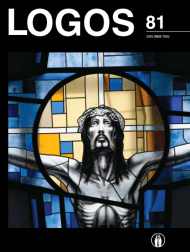
The paper aims to present Dowgird’s attitude toward various topics in the philosophy of Immanuel Kant. Its main objective is to specify and characterize Dowgird’s convictions which are of a direct relevance to the issues posed within transcendental idealism. The paper delivers t important information concerning Dowgird’s life, a general outline of his philosophical conceptions against the background of philosophy during the Polish- Lithuanian Enlightenment, and – in the main part – an articulation of these elements in Dowgird’s philosophy which stand in a clear opposition to Kant’s views. The aim of the paper is to justify the thesis that Dowgird’s attitude toward Kant’s philosophy was a complex, highly critical one, though different from that of other philosophers of the Polish-Lithuanian Commonwealth at the beginning of the nineteenth century. Dowgird’s uniqueness is twofold. First, in comparison with the efforts of his Enlightenment contemporaries, his analyses of Kant’s theories were more substantial, very scrupulous and exceptionally sophisticated. Second, many of the problems discussed by Kant were approved by Dowgird as rightful philosophical questions.
More...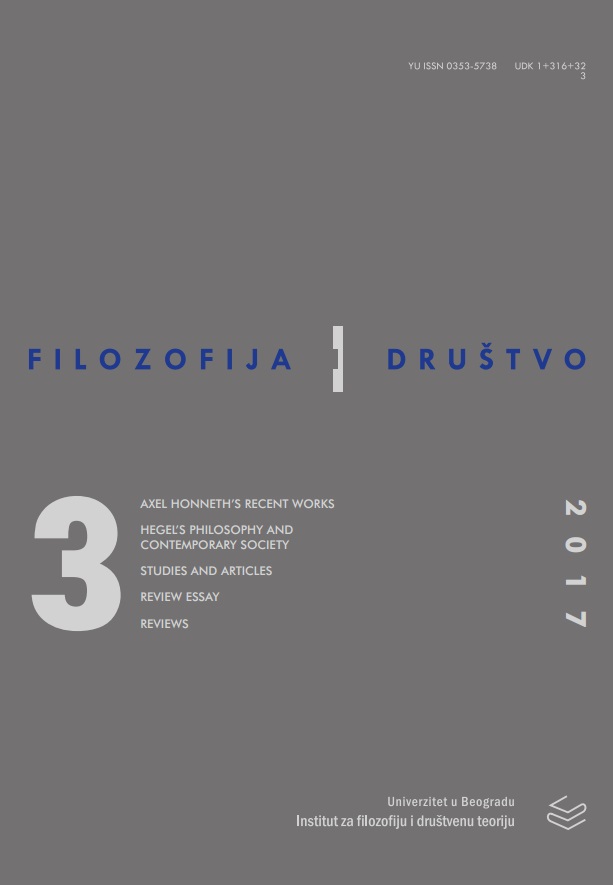
This study focuses on the interrelation of freedom, finitude, and reconciliation in Hegel’s understanding of religion. These three moments are found at central stages of Hegel’s treatment of the religious, from Hegel’s early fragments to his mature work. Finitude taking shape in the religious phenomena of a tragic fate, sin, or more generally, failing, is central to Hegel’s philosophical understanding of one-sidedness. As finite, man needs to reconcile with the other, and only as reconciled does he achieve freedom. Hegel credits Christianity with the discovery of the primary essences of spirituality: freedom and forgiveness. Freedom is intensified with the death of God: man realizes that there is no Godgiven, only man-made, legislation. This deepening of freedom does not overcome man’s finitude but instead intensifies it along with a heightened sense for responsibility, and an increased potential for guilt. In this context, forgiveness is the highest spiritual capacity of modern man, whose fate is to bear the freedom of oneself and the other.
More...
The text examines different assumptions of Hegel’s understanding of the corporation across various versions of his Lectures of the Philosophy of Right, given recent contemporary reflections on “the end of capitalism.” My intention is to take Hegel’s thematization of the poor and poverty, as well as the significance Hegel ascribes to common work and the constitution of a working group as the foundation of civil society, and formulate these as real conditions of a potential reconstruction of the corporative model and new common action.
More...
The experiences of the communist countries in Eastern Europe have made clear that the centralized planned economy (without a free market) does not function. From Hegel’s perspective, it can be said that this experience is not just coincidental: the abolition of the free market includes the abolition of the institutional framework that enables insight into the formation of particular interests. Without this insight, it becomes impossible to determine the content of the general good. Therefore, Hegel’s alternative, self-conscious planning of the economic process while the free market is preserved, seems to be unavoidable. However, it remains highly problematic whether or how this connection between planning and free market can be understood. In this article I investigate whether Hegel’s concept of the corporation can help in finding an answer to this problem.
More...
‘Hegel’ and ‘human rights’ are rarely conjoined, and the designation ‘human rights’ appears rarely in his works. Indeed, Hegel has been criticised for omitting civil and political rights all together. My surmise is that readers have looked for a modern Decalogue, and have neglected how Hegel justifies his views, and hence just what views he does justify. Philip Pettit (1997) has refocused attention on republican liberty. Hegel and I agree with Pettit that republican liberty is a supremely important value, but appealing to its value, or justifying it by appeal to reflective equilibrium, are insufficient both in theory and in practice. By reconstructing Kant’s Critical methodology and explicating the social character of rational justification in non-formal domains, Hegel shows that the republican right to non-domination is constitutive of the equally republican right to justification (Forst 2007) – both of which are necessary requirements for sufficient rational justification in all non-formal domains, including both claims to rights or imputations of duties or responsibilities. That is the direct moral, political and juridical implication of Hegel’s analysis of mutual recognition, and its fundamental, constitutive role in rational justification. Specific corollaries to the fundamental republican right to non-domination must be determined by considering what forms of illicit domination are possible or probable within any specific society, in view of its social, political and economic structures and functioning.
More...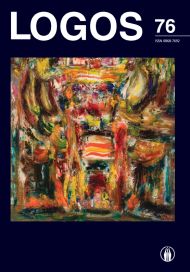
The author analyses the transformation of the concept of aesthetics in the ontological hermeneutics of German philosopher Hans Georg Gadamer and Italian thinker Luigi Pareyson. Gadamer insists that aesthetics has to be assimilated into hermeneutical art philosophy, and this strategy fits the contemporary art perspective. However in Western tradition the dimension of art usually is related not to hermeneutical understanding and thought in general, but to the senses, intuition, imagination. Therefore there arises the question – Does Gadamer avoid the risk to resolve art into philosophy, as it was done in Hegel’s philosophy of art? On the other hand, there are doubts that this risk is common to hermeneutical philosophy in general. As the critics of hermeneutics have noted, hermeneutics deals more with the meanings and significances than with reality. These doubts are rejected by analysing the concept of aesthetics as the theory of formativity in Pareyson’s hermeneutics. The author observes that Pareyson’s aesthetics of formativity at some point is more radical than Gadamer’s concept of the art’s philosophy, because the first one considers the artwork as the practice.
More...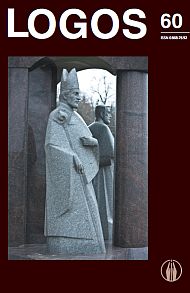
The object of this article is to revise the creative heritage of Kazimieras Narbutas (Kazimierz Narbutt) - one of the most prominent thinkers of the initial period of the Enlightenment in Lithuania. The article attempts to check the opinion, which has penetrated our investigatory writings, that Nabutas dealt with the pre-critical philosophy of Immanuel Kant. As it becomes clear from the revision of works of Narbutas, he had been dealing, not with the works of Kant, but with the works of German philosopher and theologian, Israel Gottlieb Canz. It was Canz, whom Narbutas questioned in dealing with basic ontological questions on the essence of the substance. Narbutas does not oppose philosophy and positive theology; he just attempts to define strictly the limits of their exposition. Philosophy is declined the rights to intervene in theology, into the area of faith, while theology is restrained from philosophical matters. Thus Narbutas has distanced himself from Canz, as well as from the other followers of theologian, Christen Wolff.
More...